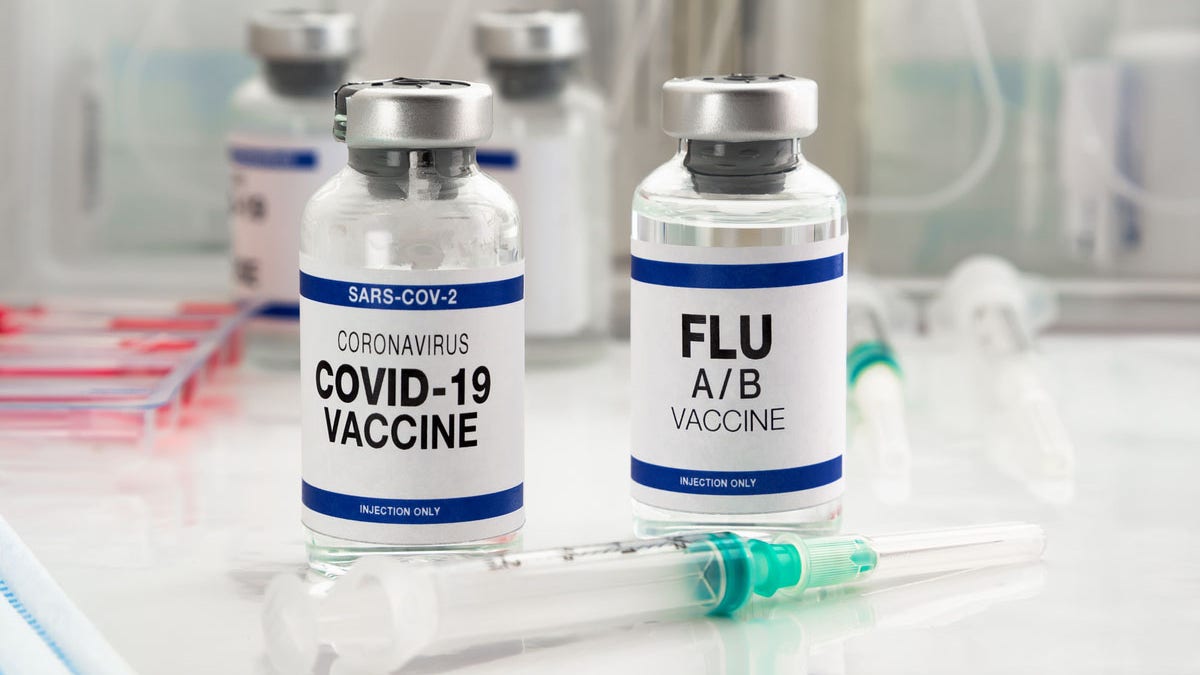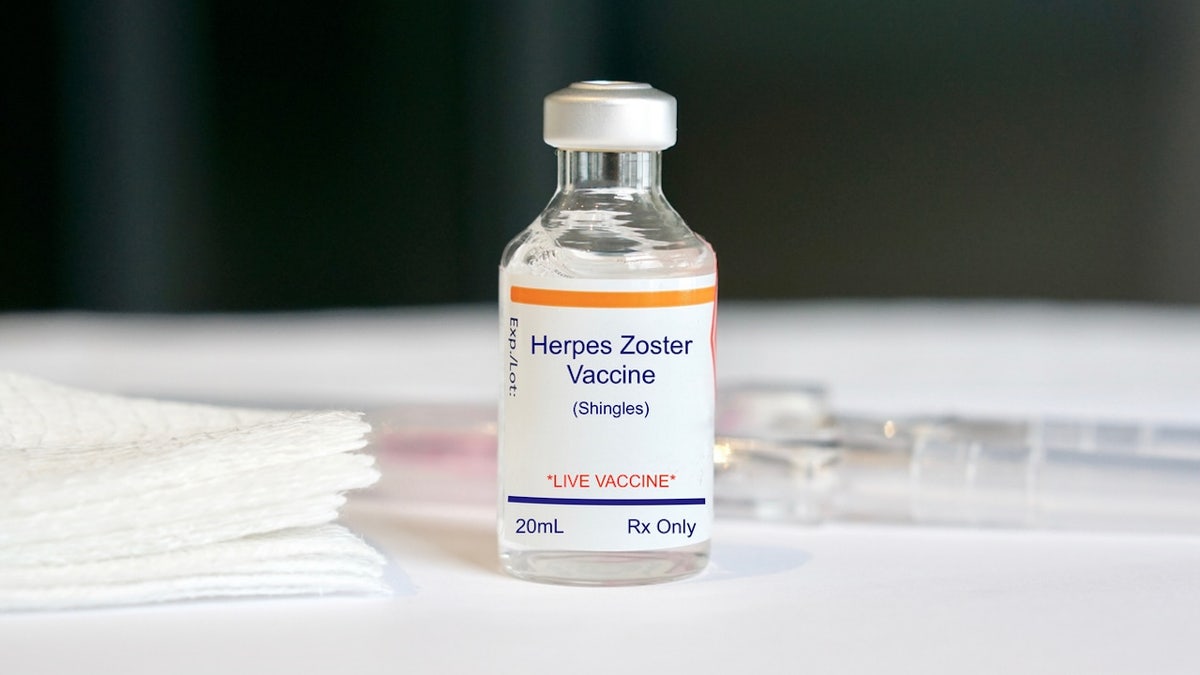Vaccines are 'community health tools,' says Dr. Marc Siegel
The doctor speaks about the importance of vaccinations among school-age children and whether people should get flu and COVID shots at the same time
Heading into the thick of flu and COVID season, there have been some recent changes to vaccine recommendations for people over age 50.
The U.S. Centers for Disease Control and Prevention (CDC) recently lowered the age for pneumonia vaccinations by 15 years.
Instead of recommending the pneumococcal vaccine for those 65 and over, the shot is now suggested starting at age 50.
TUBERCULOSIS HAS OVERTAKEN COVID AS WORLD'S DEADLIEST INFECTIOUS DISEASE
"Everyone over 50 should be thinking about vaccines, because as we age, our immune system can become more vulnerable," Dr. Susannah Hills, surgeon and assistant professor at Columbia University Medical Center in New York City, told Fox News Digital.
When choosing which vaccinations to get, it is also important to consider personal risk, she said.

The CDC recently lowered the age for pneumonia vaccinations by 15 years, from 65 to 50. (iStock)
"Are there underlying health conditions like diabetes, immunodeficiency or cancer? If so, getting vaccinated becomes even more important."
PIG INFECTED WITH BIRD FLU FOR FIRST TIME IN US, HEALTH OFFICIALS CONFIRM
To help people 50 and older keep track of immunization guidance for their age group, Fox News Digital gathered insights from several infectious disease experts.
1. Flu vaccine
The CDC recommends that everyone 6 months and older gets a flu vaccine every year, including those 50 and up.
Dr. Jennifer Dunphy, a public health doctor in Los Angeles, California, noted that the flu vaccine is known to significantly reduce deaths and hospitalizations (from 40% to 52%) in the 50 and older population.
"Everyone over 50 should be thinking about vaccines … As we age, our immune system can become more vulnerable."
"It is recommended to get the vaccine at the end of summer, preferably in September, before the weather changes and viruses become more common," she told Fox News Digital.
Common side effects include body aches and low-grade fever, the doctor noted.

The flu vaccine is known to significantly reduce deaths and hospitalizations (from 40% to 52%) in the 50 and older population, a doctor noted. (iStock)
"In some cases, there are very rare but more serious side effects that may impact the nervous system," Dunphy said.
"The benefits of the vaccine for most people over 50 will outweigh any risks, but it is recommended to talk to your doctor."
2. COVID-19 vaccine
The CDC recommends that everyone 6 months and older is vaccinated against COVID-19 and receives an updated vaccine each year, typically in the fall before the end of October.
The agency also advises people 65 and older to receive a second dose of the vaccine.
VACCINES FOR FLU AND COVID: SHOULD YOU GET BOTH AT THE SAME TIME?
"Together with flu and RSV, COVID is part of a triad of respiratory viruses that cause high rates of hospitalization and death in older adults, with increased risk seen with advancing age," Dr. Amy Edwards, associate professor in the Department of Pediatrics at the School of Medicine at Case Western Reserve University, told Fox News Digital.

For the COVID-19 vaccine, it is recommended that people get two full doses spaced at least three weeks apart followed by annual boosters, a doctor said. (iStock)
For the COVID-19 vaccine, it is recommended that people get two full doses spaced at least three weeks apart followed by annual boosters, according to Dunphy.
The boosters are tailored to be effective against the most current strain of the virus, she said.
"The COVID vaccine works to increase the development of antibodies that fight against exposure turning into infection, and infection from transitioning into serious infection," she said.
"Side effects vary, but are mostly limited to mild, flu-like symptoms."
Some serious adverse effects have been linked to COVID vaccines, including anaphylactic shock, myocarditis (inflammation of the heart muscle) or pericarditis (inflammation of the lining surrounding the heart), according to the CDC.
3. Pneumococcal vaccine
The pneumococcus (pneumonia) vaccine is recommended for children younger than 5 years and adults 50 years or older.
This is an update to previous guidance, which called for vaccines in adults 65 and older.
VACCINE EXEMPTIONS ARE RISING AMONG KINDERGARTENERS, CDC REPORTS
This one-time vaccine is designed to protect against bacterial infections that can cause pneumonia, sepsis and meningitis.
The agency recommends giving one of three available vaccines — PCV15, PCV20 or PCV21 — to all adults 50 years or older who have never received a pneumococcal conjugate vaccine or who are uncertain of their vaccination history.
"The rate of hospitalizations and death from pneumonia goes up at age 50 and then again by a lot at age 65 years old," Edwards told Fox News Digital.

"The rate of hospitalizations and death from pneumonia goes up at age 50 and then again by a lot at age 65 years old," a doctor told Fox News Digital. (iStock)
"Typically, adults are advised to get a single dose, but some higher-risk adults may get a dose every five years."
Side effects are generally minimal from this vaccine, she noted.
Fever, chills, fatigue, headache, muscle aches, joint pain, or redness, swelling, pain or tenderness at the injection site are some possible side effects, according to the CDC.
4. Tdap vaccine
The Tdap (tetanus, diphtheria, pertussis) vaccine helps to protect against tetanus, diphtheria and pertussis.
NASAL SPRAY FLU VACCINE GETS FDA APPROVAL FOR HOME USE: ‘A GOOD ALTERNATIVE’
Pertussis, more commonly known as whooping cough, has seen a spike in the U.S. in 2024, with more than five times the cases reported at the same time last year.
"All adults should get the tetanus vaccine every 10 years, as that is the longest protection lasts," Edwards advised.

Most doctors agree that it's OK to get the COVID and flu vaccines at the same time. (iStock)
"Vaccination against whooping cough is sometimes recommended for some older adults, especially those who will spend time with very young children (grandchildren), as infants are at very high risk for death from whooping cough."
The most common side effects after a Tdap vaccination include mild fever, headache, fatigue, vomiting, nausea, diarrhea, and pain, swelling or redness at the injection site, the CDC stated.
Adults should discuss with their doctors about whether this vaccine is necessary.
5. Shingles vaccine
It is recommended that adults 50 and older receive two doses of Shingrix, the shingles vaccine, two to six months apart, per the CDC.
The vaccine protects against a condition called herpes zoster, more commonly known as shingles.
CLICK HERE TO GET THE FOX NEWS APP
The infection causes a painful rash caused by the varicella-zoster virus, which can cause nerve damage, chronic nerve pain and sometimes inflammation of the brain, according to Edwards.
"Shingles becomes more common with each decade past 50," she said.

It is recommended that adults 50 and older receive two doses of Shingrix, the shingles vaccine, two to six months apart, per the CDC. (iStock)
"This vaccine tends to be kind of rough, with high rates of fever and body aches," Edwards cautioned.
"Many people who have had both say the shingles vaccine is as bad or worse than the mRNA COVID vaccines as far as making you feel bad for a day or two afterward."
CLICK HERE TO SIGN UP FOR OUR HEALTH NEWSLETTER
The shingles vaccine is currently administered as a one-time, lifetime dose with no boosters recommended later in life for those vaccinated at around age 50, Edwards noted.
For more Health articles, visit www.foxnews.com/health
Experts agree it’s best for each person to discuss a vaccine plan with his or her primary care physician.
Hills added, "Some people may be at higher risk and may need to get these vaccines earlier or may need other vaccines as well."










































